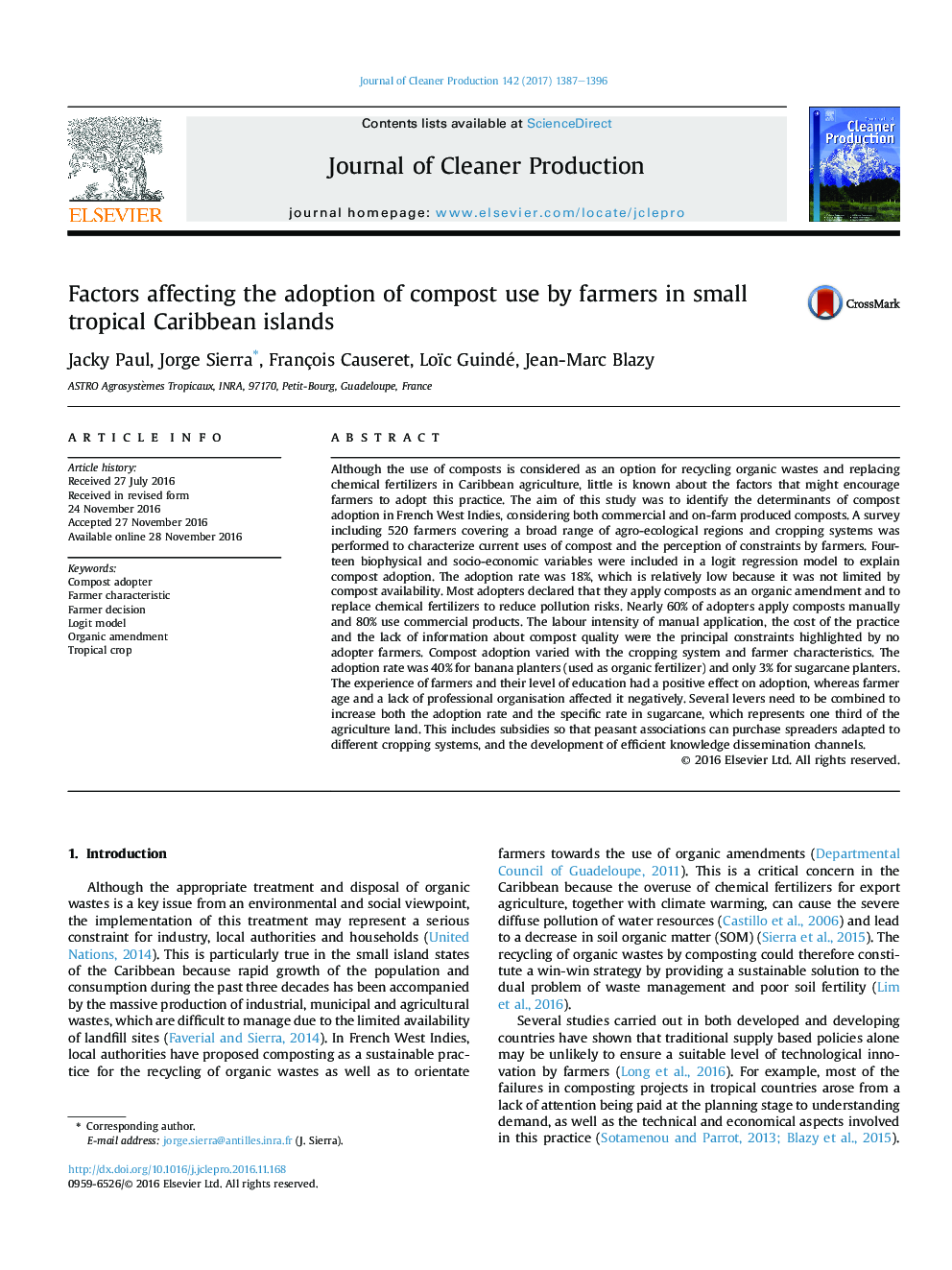| Article ID | Journal | Published Year | Pages | File Type |
|---|---|---|---|---|
| 5480319 | Journal of Cleaner Production | 2017 | 10 Pages |
Abstract
Although the use of composts is considered as an option for recycling organic wastes and replacing chemical fertilizers in Caribbean agriculture, little is known about the factors that might encourage farmers to adopt this practice. The aim of this study was to identify the determinants of compost adoption in French West Indies, considering both commercial and on-farm produced composts. A survey including 520 farmers covering a broad range of agro-ecological regions and cropping systems was performed to characterize current uses of compost and the perception of constraints by farmers. Fourteen biophysical and socio-economic variables were included in a logit regression model to explain compost adoption. The adoption rate was 18%, which is relatively low because it was not limited by compost availability. Most adopters declared that they apply composts as an organic amendment and to replace chemical fertilizers to reduce pollution risks. Nearly 60% of adopters apply composts manually and 80% use commercial products. The labour intensity of manual application, the cost of the practice and the lack of information about compost quality were the principal constraints highlighted by no adopter farmers. Compost adoption varied with the cropping system and farmer characteristics. The adoption rate was 40% for banana planters (used as organic fertilizer) and only 3% for sugarcane planters. The experience of farmers and their level of education had a positive effect on adoption, whereas farmer age and a lack of professional organisation affected it negatively. Several levers need to be combined to increase both the adoption rate and the specific rate in sugarcane, which represents one third of the agriculture land. This includes subsidies so that peasant associations can purchase spreaders adapted to different cropping systems, and the development of efficient knowledge dissemination channels.
Keywords
Related Topics
Physical Sciences and Engineering
Energy
Renewable Energy, Sustainability and the Environment
Authors
Jacky Paul, Jorge Sierra, François Causeret, Loïc Guindé, Jean-Marc Blazy,
